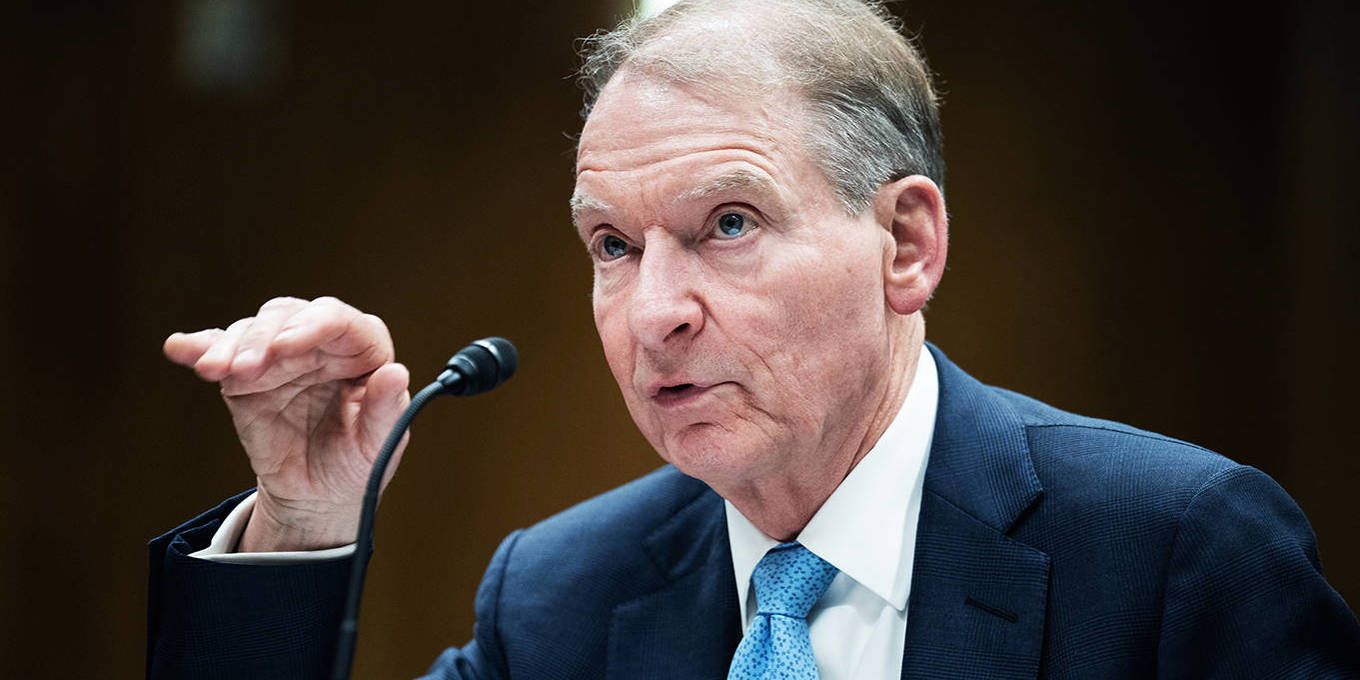Opinion
Our research makes it clear: by capitulating to the right, Labour is driving voters to Reform UK | Tarik Abou-Chadi and Stuart Turnbull-Dugarte
Read more on post.

As the Labour party gathers in Liverpool this weekend for its annual conference, everyone will be discussing one word: Reform. Nigel Farage’s party is polling nationally around 13 points ahead of the Conservatives and 10 points ahead of Labour. Even in Merseyside, whose 16 constituencies used to be Labour safe seats, the party no longer seems assured. The government’s strategy for dealing with this has so far been shaped by an overwhelmingly flawed instinct: if Farage’s latest party is winning votes by talking tough on immigration, then Labour should shift rightwards too.
Starmer’s “island of strangers” speech earlier this year marked a dramatic turn to the right on immigration. That infamous moment marked the publication of a government white paper that promised to clamp down on net migration, and blamed immigrants for overstretching public services – ignoring how chronic disinvestment has left many of those services threadbare. Farage could barely contain his delight at Labour’s new strategy. He congratulated Starmer for “learning a great deal” from Reform UK. Imitation really is the greatest form of flattery.
Labour is not alone in this. Across Europe, the left has repeatedly responded to the radical right by echoing their rhetoric on immigration. In Germany, the previous coalition government, led by Social Democrat Olaf Scholz as chancellor, sharply changed its rhetoric and policies on immigration and asylum as it attempted to see off Alternative für Deutschland (AfD). In the February 2025 election, the Social Democratic party received their historically worst result, securing just 16.4% of the vote, while the AfD did better than ever before, with 20.8% – an increase of more than 10% compared with the last election in 2021.
As political scientists, we’ve spent years investigating what happens when mainstream parties “get tough” on immigration, and how this affects support for the radical right. We recently studied what happened to people’s assessment of Labour, and their likelihood of voting for the party or Reform, shortly after Starmer gave his island of strangers speech. The speech helpfully coincided with a period when people were answering a survey for the British Election Study, so we gathered responses from people who were interviewed immediately before the speech, and those interviewed immediately after. The results: the speech made Labour and Starmer less popular, especially among Labour’s own voters. It significantly boosted immigration as an issue in people’s minds. There is no evidence it helped to reduce support for Reform, or convince Reform voters that they should vote Labour.
Recent research from Persuasion UK, a nonprofit, told much the same story. It found that Labour’s messaging around deportations strengthened the importance of the issue while potentially strengthening Reform. This is hardly unique to Labour. We studied more than 70 different elections that took place in 12 western European countries over several decades, and found that when mainstream parties take more anti-immigration positions, it leads to more support for the radical right, not less. We’ve also found that when social democratic parties propose strongly reducing immigration numbers, this leads to less support for social democratic parties at the ballot box. When progressive parties imitate the right, they weaken their own electoral prospects.
The picture that emerges from this research is clear: moving right on immigration doesn’t help Labour. It alienates Labour’s progressive base and fails to win over Reform voters. When Labour defines itself as a party happy to mimic those who scapegoat migrants, liberally minded voters feel betrayed. Many decide that they can no longer vote for the party. Even under first past the post, these voters will move to another party such as the Greens, or stay at home on election day.
At the same time, anti-immigration voters see Labour’s pivot as inauthentic mimicry. Many of them don’t even register Labour’s rightwards shift, since Labour doesn’t fall in their list of parties that might win their vote. For them, if immigration is the defining issue, Reform or the Conservatives will always be the more credible option, no matter what Labour do.
In the short term, presenting Labour as a party that’s tough on immigration is a vote-losing strategy. In the long term, it may even have the opposite effect of bolstering the success of the very party Labour seeks to outmanoeuvre. When radical-right words come from Labour mouths, the nativist and illiberal values attached to these words become increasingly normalised, shifting the boundaries of what is politically acceptable.
Copying the radical right is electorally self-defeating. Social democratic parties that try this route lose their own supporters without gaining new ones, and help to legitimise their opponents in the process. It’s time for Labour to engage in some self-reflection about the type of party it wants to be. At the moment it operates as if advancing a progressive agenda and being in government are mutually exclusive. That is far from the case. It can’t beat the radical right by becoming a pale imitation of it.
after newsletter promotion
-
Tarik Abou-Chadi is professor of European politics at Nuffield College, University of Oxford. Stuart Turnbull-Dugarte is associate professor in quantitative political science at the University of Southampton.
Opinion
John McManus: Why am I paying my bin company so I can do its work?

Read more on post.
If you are a less than diligent customer of a certain bin company, you probably receive regular emails with links to photographs of your rubbish being emptied into the back of a their truck.
Your various sins against recycling are pointed out to you in a polite but disapproving tone.
You might get mildly annoyed over these emails on the basis that when you signed up as a customer of this company many years ago, you did not have to separate your glass or wash your yoghurt pots. Yet your bill has just gone up again.
And if you were approaching the grumpy old man period of your time on Earth, you could even find yourself wondering whether these changes are really for the benefit of the planet or the bin company. Work that the bin company used to do is now being transferred on to your shoulders, yet your bin charges have not gone down.
You might decide then and there to change bin company and ring up all its competitors – it won’t take long as there aren’t many – to find they charge pretty much the same price for the same service.
There is not much else you can do after that, other than to lie down for a while in a darkened room and listen to recordings of whale songs.
Whatever you do next, make sure you do not read a newspaper report that the Irish Waste Management Association (IWMA), which represents the bin companies, is opposing a proposal to reform the industry because it will damage competition. You will need something stronger than whale songs.
Ireland is unusual insofar as we do not directly regulate waste collection companies. There are plenty of laws bin companies must follow, but there is no single body charged with making sure they play fair and meet their obligations – as is the case with phone companies, energy companies and Uisce Éireann.
This surprisingly laissez-faire approach is attributed to the Government getting its fingers so badly burned in early 2000, when it tried to introduce charges for the bin collection services provided by local authorities. The political fallout rendered it a no-go area and led to the privatisation of collections.
We are also an outlier because we operate what is called a “side-by-side” system whereby bin companies are free to compete (or not compete) with each other to sign up customers anywhere they choose, although they tend to concentrate on certain areas.
Things may be about to change. The Department of the Environment has sought submissions from the public about changing to a system whereby companies will be required to compete for an exclusive fixed-term contract to collect bins in a particular region.
The period for making submissions has closed and consultants are due to report back in the spring. Don’t hold your breath.
The submissions have not been made public but according to a report in the Irish Independent, subsequently confirmed by a representative for the IWMA, the industry is against the proposal, arguing it would be bad for consumers because it will reduce competition. “It is inevitable that any change would result in increased costs on households already hit by cost-of-living increases,” the IWMA told the paper, presumably with a straight face.
It is not every day that you get businesses arguing against the chance to have a monopoly – albeit a regulated one. If anything, it should start the economic alarm bells ringing. But the bin collection business is not a typical business. Several big mergers in recent years have consolidated the industry to the point that the State competition watchdog has described it as broken.
[ Buy, eat, bin, repeat – we are locked in a never-ending flow of wasteOpens in new window ]
The Competition and Consumer Protection Commission (CCPC) has applied conditions to some of the mergers to lessen the impact on competition, but is firmly of the view that too much power is concentrated among too few players and that the industry needs to be regulated in the same way as other utilities.
A move to a franchise system would amount to the same thing and put enough of a fire break between the Government and the price of getting your bin collected to be politically plausible.
It might have been tempting to take the view that the bin companies’ lack of enthusiasm for change has something to do with the money they are making in the current unregulated free-for-all. It is reassuring to know they actually have the interests of their customers at heart. Second only to the interests of the planet, of course.
Opinion
“America First” Accounting Standards?

Read more on post.
LONDON – When it comes to international accounting standards, US authorities have long resembled Dr. Jekyll and Mr. Hyde. When the ordinary, well-adjusted Dr. Jekyll has been in control, the Securities and Exchange Commission has worked toward a convergence of US and international standards, even speaking optimistically about adopting the latter someday. By contrast, Mr. Hyde, the deranged alter ego, has tended to see international standards as a Trojan horse for undesirable foreign practices that would corrupt America’s “gold-standard” generally accepted accounting principles (GAAP).
Opinion
Answering Trump’s United Nations Challenge

Read more on post.
NEW YORK – America’s retreat from multilateralism, which President Donald Trump proudly emphasized in his speech this week to the United Nations General Assembly, and which is most clearly demonstrated by his administration’s dismantling of the United States Agency for International Development (USAID), has upended the institutions and norms that underpin the UN. Indeed, the viability of the UN Sustainable Development Goals (SDGs) is now in doubt, and calls to fill the gaps, particularly in funding, are growing more urgent.
-
Politics3 days ago
European Parliament snubs Orbán with vote to shield Italian MEP from Hungarian arrest
-
Culture3 weeks ago
Life, loss, fame & family – the IFI Documentary Festival in focus
-
Health4 days ago
EU renews support for WHO’s Universal Health Coverage Partnership
-
Environment6 days ago
Key oceans treaty crosses threshold to come into force
-
Culture2 months ago
Fatal, flashy and indecent – the movies of Adrian Lyne revisited
-
Culture3 days ago
Twilight at 20: the many afterlives of Stephenie Meyer’s vampires
-
Culture1 week ago
Farewell, Sundance – how Robert Redford changed cinema forever
-
Culture3 weeks ago
What is KPop Demon Hunters, and why is everyone talking about it?















































